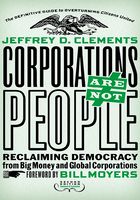
1971: Lewis Powell and the “Activist-Minded Supreme Court”
In late August 1971, Lewis Powell, a mild-mannered, courtly, and shrewd corporate lawyer in Richmond, Virginia, soon to be appointed to the US Supreme Court, wrote a memorandum to his client, the US Chamber of Commerce. The next day, he traveled to the Chamber’s offices in Washington, D.C., to meet with the leaders of the powerful lobby. There, Powell outlined a critique and a plan that changed America.
Powell, like the Citizens United dissenter Justice John Paul Stevens, was a decorated World War II veteran who had returned home to build a respected law practice. By all accounts, he was a gentleman—reserved, polite, and gracious—and a distinguished lawyer and public servant. Commentators and law professors cite Powell’s “qualities of temperament and character” and his “modest” and “restrained” approach to judging. At his funeral in 1998, Sandra Day O’Connor, who had joined the Supreme Court in 1987, said, “For those who seek a model of human kindness, decency, exemplary behavior, and integrity, there will never be a better man.”
At his funeral in 1998, Sandra Day O’Connor, who had joined the Supreme Court in 1987, said, “For those who seek a model of human kindness, decency, exemplary behavior, and integrity, there will never be a better man.” Even the rare critic will cite Lewis Powell’s decency and kindness.
Even the rare critic will cite Lewis Powell’s decency and kindness.
Much about these accounts must be true, but none tells the whole story of Lewis Powell. All of them, and even the principal Powell biography, omit the details of how he used his gifts to advance a radical corporate agenda. It is impossible to square this corporatist part of Powell’s life and legacy with any conclusion of “modest” or “restrained” judging.
Powell titled his 1971 memo to the US Chamber of Commerce “Attack on American Free Enterprise System.” “No thoughtful person,” he explained, “can question that the American economic system is under broad attack.” In response, corporations must organize and fund a drive to achieve political power through “united action.” Powell emphasized the need for a sustained, multiyear corporate campaign to use an “activist-minded Supreme Court” to shape “social, economic and political change” to the advantage of corporations.
Powell continued:
But independent and uncoordinated activity by individual corporations, as important as this is, will not be sufficient. Strength lies in organization, in careful long-range planning and implementation, in consistency of action over an indefinite period of years, in the scale of financing available only through joint effort, and in the political power available only through united action and national organizations.
The roots of Citizens United lie in Powell’s 1971 strategy to use “activist” Supreme Court judges to create corporate rights. “Under our constitutional system,” Powell told the US Chamber of Commerce, “especially with an activist-minded Supreme Court, the judiciary may be the most important instrument for social, economic and political change.”
Powell’s call for “business to go on the offensive” should not be misunderstood as a “conservative” or “moderate” reaction to the excesses of “liberals” or “big government.” Rather, to understand the perspective of Powell and his allies is to understand the difference between a conservative and a corporatist.